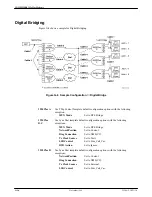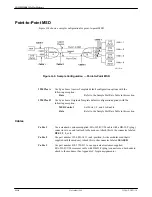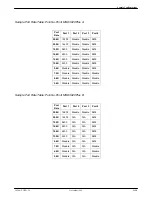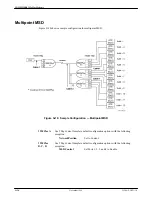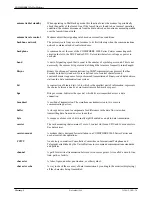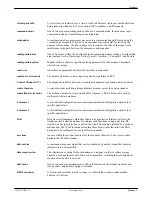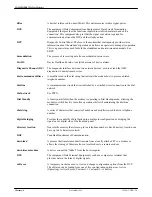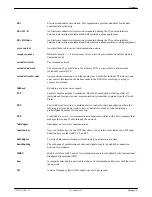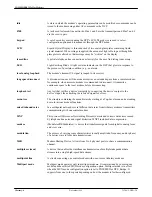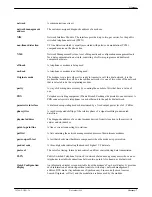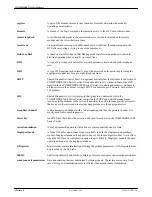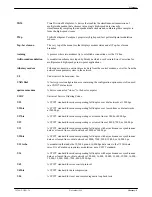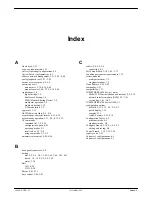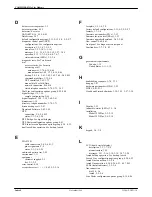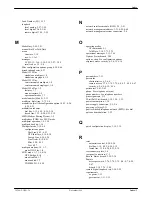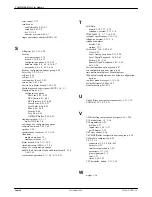
COMSPHERE 392xPlus Modems
Glossary-8
November 1996
3920-A2-GN31-30
register
A part of the modem’s memory that contains values that determine the modem’s
operating characteristics.
Remote
A branch of the Top-Level menu that permits access to the DCP of another modem.
remote loopback
A test that sends a signal to the remote modem to test the local modem, the remote
modem, and the circuit between them.
result code
An asynchronous message (in either numbers or words) that the modem sends to the
DTE after executing or trying to execute a command.
Return to Dial
A function available when in Dial Backup mode that allows the modem to switch to
dial-line operation when currently on leased lines.
RJ11
A type of 6-position jack normally used with permissive dial networks and telephone
sets.
RJ21
A type of 50-position jack normally used with permissive dial networks providing the
appropriate conductors for up to eight telephone lines.
SDCP
Shared Diagnostic Control Panel. An optional user interface that attaches to the front of a
COMSPHERE 3000 Series Carrier. Its functionality is very similar to that of the DCP.
Installed in one COMSPHERE 3000 Series Carrier, it controls and monitors modems in
all the carriers in the cabinet. A single SDCP can control up to 8 carriers, with a total of
128 modems.
SDU
Shared Diagnostic Unit. A circuit card that plugs into a dedicated slot in the
COMSPHERE 3000 Series Carrier to provide the SDCP and network management
interfaces to the modems in the carrier. It translates the network management protocol to
the devices in the carrier and routes incoming messages to the appropriate slots.
secondary channel
A data transmission channel with a lower signaling rate than the primary channel. It is
mostly used for modem diagnostics.
Select key
An SDCP key that allows the selection of a specific card slot in the COMSPHERE 3000
Series Carrier.
serial transmission
A way of transmitting data in which bits are sent sequentially one at a time.
Singleport mode
A Model 392xPlus operational mode is available in both the singleport and multiport
modem. Singleport mode only supports one port. For the multiport modem, it is in effect
when the MUX mode configuration option is set to Disable. Singleport mode is the only
operational mode for the singleport modem.
S-Registers
Registers that contain information affecting the modem parameters. All S-Registers must
be preceded by the AT prefix.
SubHS
Sub-Network Health and Status. A display of alarm occurrences in downstream modems.
synchronous transmission
Data transmission that is synchronized by timing signals. Characters are sent at a fixed
rate. This type of transmission is more efficient than asynchronous transmission.

